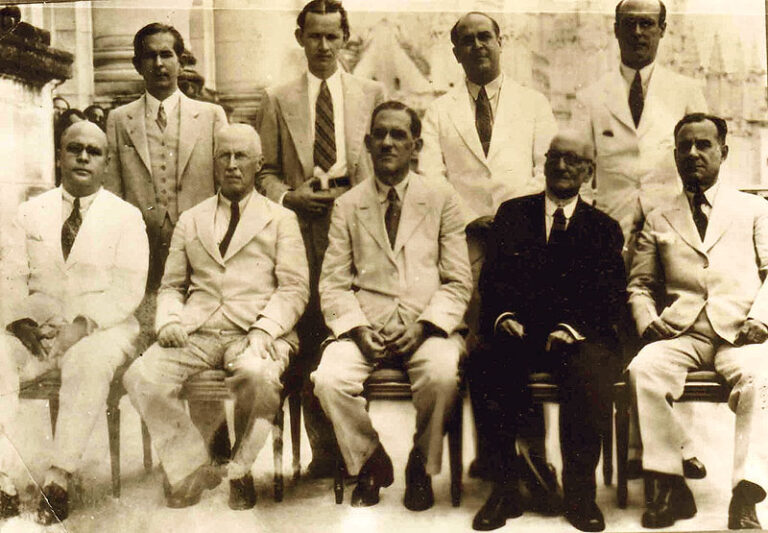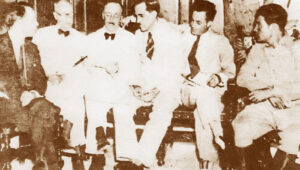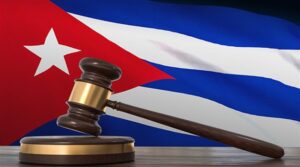One Hundred Days of Government for the People.

And precisely, on September 12th, when President Grau announced the members of his cabinet, he mentioned the young revolutionary, Antonio Guiteras Holmes among the members.

The year 1933 remained in the pages of Cuban history as a period of changes in which the different political currents and the influence of American interests gave rise to radical processes in the country.

Thus, after the dissolution of the Pentarchy, a provisional government was created with Ramón Grau San Martín at its head. And precisely, on September 12, when President Grau announced the members of his cabinet, he mentioned the young revolutionary, Antonio Guiteras Holmes among the members.
There began the actions of Guiteras at the head of the Government and Public Works, at the beginning and after the merger, in the Government, War and Navy; always willing to follow a political line in favor of the humble, of national independence and against the domination of the North American monopolies.
A difficult undertaking in which Guiteras stood out as the most radical and progressive of the ministers when confronting corruption and the surrender to the United States. Hence the establishment of the eight-hour workday, the minimum wage, the purification of state agencies, the proclamation of university autonomy and the reduction of the price of electricity, among other anti-imperialist and social justice measures.
Guiteras also had the courage and strength to intervene in the so-called Cuban Electricity Company, baptized by the people as «The Electric Octopus» because its tentacles extended throughout the national territory, drowning customers with its high rates.
Of these measures, Guiteras himself expressed: «… I have the satisfaction of having taken to the signature of President Grau, the decrees that attacked Yankee imperialism the hardest…».
With all these programs the Government of the Hundred Days was not recognized by the United States, the risk they represented was too great to maintain its hegemony in the neocolonial island.
The lack of coherence between the Left and Right sectors, the intervention of the army with the figure of Fulgencio Batista and the U.S. push, caused the government of President Grau to end on January 15th, 1934.
Only 127 days of exercise, hence the name of the Government of the Hundred Days.
With the death of Guiteras, some thirteen months later, the steepest figure, the best tempered spirit, the most indomitable will, the most energetic arm and the purest spirit of the national revolutionary movement, as described by Raúl Roa, was lost.
Written by Ana González.




